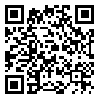Volume 17, Issue 2 (2010)
EIJH 2010, 17(2): 13-21 |
Back to browse issues page
Download citation:
BibTeX | RIS | EndNote | Medlars | ProCite | Reference Manager | RefWorks
Send citation to:



BibTeX | RIS | EndNote | Medlars | ProCite | Reference Manager | RefWorks
Send citation to:
Sodaei B, Khademi Nadooshan F, Naebpor M, Neyestani J. History as a Tool to Identify Stray Coins: Case Study of Reza Abbasi Museum. EIJH 2010; 17 (2) :13-21
URL: http://eijh.modares.ac.ir/article-27-8616-en.html
URL: http://eijh.modares.ac.ir/article-27-8616-en.html
1- Tarbiat Modares University
2- Department of Archeology, Faculty of Humanities, Tarbiat Modares University
3- Faculty of Sociology, University of Police
2- Department of Archeology, Faculty of Humanities, Tarbiat Modares University
3- Faculty of Sociology, University of Police
Abstract: (3790 Views)
Hundreds of stray coins are being donated every year to different Iranian museums but it is difficult to establish their authenticities due to lack of knowledge about places of their findings. Part of these stray metallic pieces is related to Parthians. Due to their lengthy rule, of about five centuries, Parthian coins form important part of numismatic collection at the museums. Authors have taken Reza Abbasi Museum at Tehran as case study to review the authenticity of those coins.
A comparison between statistical data and available historical records give a vivid idea about the genuineness and forgery of these metallic pieces. As such, this article attempts to show the genuineness of some of the coins by taking into account statistical data from early Parthian kings and their comparison with the available historical documents.
Received: 2009/10/26 | Accepted: 2010/01/23 | Published: 2010/05/22
| Rights and permissions | |
 |
This work is licensed under a Creative Commons Attribution-NonCommercial 4.0 International License. |







